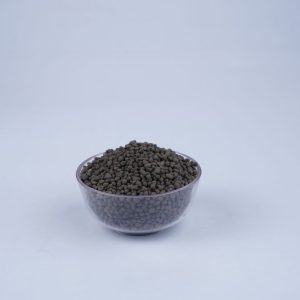When it comes to agriculture, the focus is often on the major nutrients like nitrogen, phosphorus, and potassium. However, micro-nutrients—though required in much smaller quantities—are equally crucial for plant growth and soil health. These tiny but powerful elements are vital for plant development, enhancing resistance to diseases, improving nutrient uptake, and boosting overall crop productivity. In this blog, we explore how micro-nutrients are making a macro impact on sustainable agriculture and why they should be an essential part of every farming and gardening strategy.
Curious About Micro-Nutrients? Here’s Why They Matter More Than You Think
Micro-nutrients like zinc, copper, boron, iron, and manganese may be needed in trace amounts, but their role in plant health is enormous. These elements play a critical part in enzymatic processes, photosynthesis, and overall plant metabolism. When deficient, they can cause a range of issues from poor growth to disease susceptibility. Understanding their significance is key to optimizing crop yields and soil health. But why should farmers and gardeners focus on these often-overlooked elements? Let’s dive into how micro-nutrients work behind the scenes to support healthy, thriving plants.

Enhanced Enzymatic Functions
Improved Disease Resistance
Better Nutrient Utilization
Optimal Soil Health
Soil Fertility Restoration
Enhanced Crop Productivity
Aligned with Organic Practices
Micro-nutrients, though needed in small amounts, play a vital role in plant growth and soil health. They activate key enzymes, improve nutrient efficiency, enhance disease resistance, and foster soil fertility. By optimizing these trace elements, farmers can boost crop productivity while promoting sustainable, eco-friendly agricultural practices.
The right balance of nutrients can help plants thrive, ensuring they are more resilient, healthier, and capable of withstanding environmental stresses. Dr. May Berenbaum, Entomologist and expert on agricultural sustainability
Why You Should Focus on Micro-Nutrients for Your Garden or Farm
Whether you’re managing large-scale agricultural operations or cultivating a backyard garden, micro-nutrients should be an integral part of your soil management strategy. Here’s why:
Stronger, Healthier Crops: Micro-nutrients are essential for improving plant metabolism and overall vitality, leading to healthier, more resilient crops.
Higher Crop Yields: Proper micro-nutrient levels result in better growth and higher yields, which is especially beneficial for commercial farming operations.
Reduced Environmental Impact: By improving nutrient efficiency, micro-nutrients reduce the need for excessive chemical inputs, promoting more sustainable farming practices.
Improved Soil Health: Micro-nutrients support soil microbes, helping restore soil fertility and ensuring it remains productive for years to come.


Micro-nutrients may be needed in small amounts, but their role in crop growth and soil health is undeniably large. From enhancing plant resistance to diseases to optimizing nutrient uptake, these trace elements are key to sustainable, high-yield farming. By focusing on micro-nutrient management, farmers and gardeners can achieve healthier, more productive crops while maintaining a balanced and fertile soil ecosystem. As agriculture moves towards more eco-friendly practices, micro-nutrients will continue to play a critical role in improving both plant health and environmental sustainability. Embrace the power of micro-nutrients to make a big difference with less!






